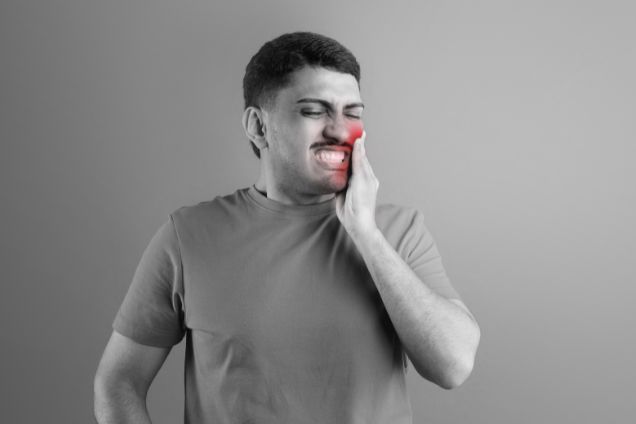TMJ Do’s & Don’ts
Living with TMJ (temporomandibular joint disorder) can be frustrating, but the right habits can make a big difference in reducing pain and improving jaw function. Here are some essential Do’s and Don’ts to help protect your jaw and support long-term relief.
The Do’s
1. Practice Good Posture
Keeping your head, neck, and shoulders aligned reduces unnecessary strain on the jaw. Poor posture can pull your lower jaw backward and increase tension.
2. Do Gentle Jaw Exercises and Stretching
Simple, low-load exercises strengthen jaw muscles and improve mobility. Examples include controlled opening, side-to-side movements, and gentle stretching guided by a therapist.
3. Use Manual Therapy and Soft Tissue Work
Massage, trigger-point release, and gentle stretching can ease muscle tightness and restore natural jaw movement.
4. Commit to Postural Education and Self-Care
Be mindful of how you hold your head and jaw throughout the day. Small adjustments—like sitting upright and avoiding chin resting—can reduce TMJ strain.
5. Seek Early Physical Therapy Intervention
Early treatment helps relieve symptoms, restore function, and prevent long-term jaw problems.
The Don’ts
1. Don’t Ignore Early Warning Signs
Clicking, discomfort, or stiffness should never be dismissed—early action prevents chronic issues.
2. Don’t Overexert the Jaw
Avoid forceful or aggressive movements when exercising or stretching your jaw. Stick to gentle, controlled motions.
3. Don’t Skip Warm-Ups Before Exercises
Start with small, light movements before going into full stretches to avoid straining the joint.
4. Don’t Chew Hard, Chewy, or Crunchy Foods
Tough foods like bagels or raw carrots put extra pressure on your TMJ. Opt for softer alternatives, and chew evenly on both sides.
5. Don’t Clench or Grind Your Teeth
These habits place significant stress on the TMJ. Consider a night guard if you grind your teeth while sleeping.
6. Don’t Keep Your Jaw in Unnatural Positions
Avoid holding your jaw wide open for long periods, such as during yawning or dental visits.
7. Don’t Slouch or Rest Your Chin on Your Hand
These positions misalign your jaw and increase strain. Maintain upright posture whenever possible.
8. Don’t Let Stress Go Unchecked
Stress often leads to clenching and grinding. Try relaxation techniques, deep breathing, or mindfulness to ease tension.
In Summary



